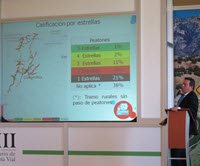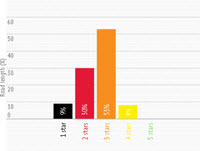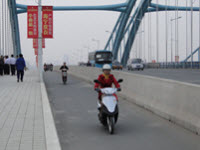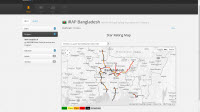Delegates from motoring clubs, road authorities, development banks, universities and companies gathered in Mexico recently for the second iRAP Latin America and Caribbean Workshop.
To date, iRAP has been used by 15 countries in the region to assess more than 80,000km of roads. This rich set of data not only provides a strong foundation for investment in safety in each country, but also holds enormous potential for regional benchmarking.
The workshop discussed numerous exiting developments. Paraguay, for example, is committed to eliminating 1- and 2-star roads, while in Belize, iRAP is being integrated into the nation’s road maintenance planning and the capital works programme.


























